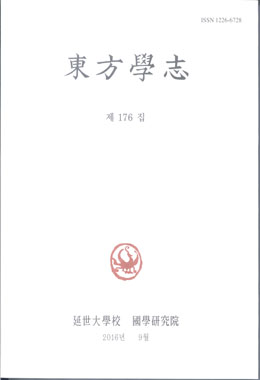“Eleven” “Twelve” “Antagonist” 및 “Language”의 語源에 對한 새로운 考察
A New Study of the Etmologies of “Eleven” “Twelve” “Antagonist” and “Language”
- 연세대학교 국학연구원
- 동방학지
- 동방학지 제7집
-
1963.03135 - 174 (40 pages)
- 14

I also found that these processes are not confined to the Chinese language, but are also found in Korean. I found that the similarity of sound change common to both families of languages is a natural phenomenon taking place in connection with the physiological construction of sounds: I further noticed that such processes of sound change are not within the confines of those two languages, but are, as historical sound laws, applicable to any language families. In order to prove this fact, I tried to clarify the etymologies of a few English words, by applying the sound laws. The results are as follows: Eleven: The former word of eleven, in the light of the sound law (C), is eneven , which is divided into ene- and -ven Here we know that enc- is a sound changed from one and -ven is the former word of the ten, in the light of the sound law (A). Hence the composition of the word eleven is 1+10. (N.B. v=b or p weakened.) Twelve: In the light of the sound law (C), the former word of this word is twenve , which is divided into twen- and -ve . Here twen- means as in twenty , while -ve is just the same as -ven in eleven , with the final sound n understood. Antagonist: Leave out the prefix ant- and the suffix -ist , and the stem of the original word is -agon- , which. in the light of the sound law (B), proves to be the former word of agong . From this, it is possible for us to infer that the original word of antagonist is agon . of which a and gon are linked together. the latter being the former word of gong . How, then is it possible that the word antagonist is derived from a gong ? In ancient tribal society. the sudden attack of enemy from without was warned by beating a gong calling for mutual defense. The similarity of these two words in ancient Chinese characters proves this fact. Language: In the light of the sound law (C), the former word of language was tanguage which is composed of tongue- and -age . The fact that the first vowels o and a are of the same origin, is seen from the fact that the word hand was spelled in two ways, hand and hond in Old English.
第一節 序論
第二節 本論
Abstract
(0)
(0)